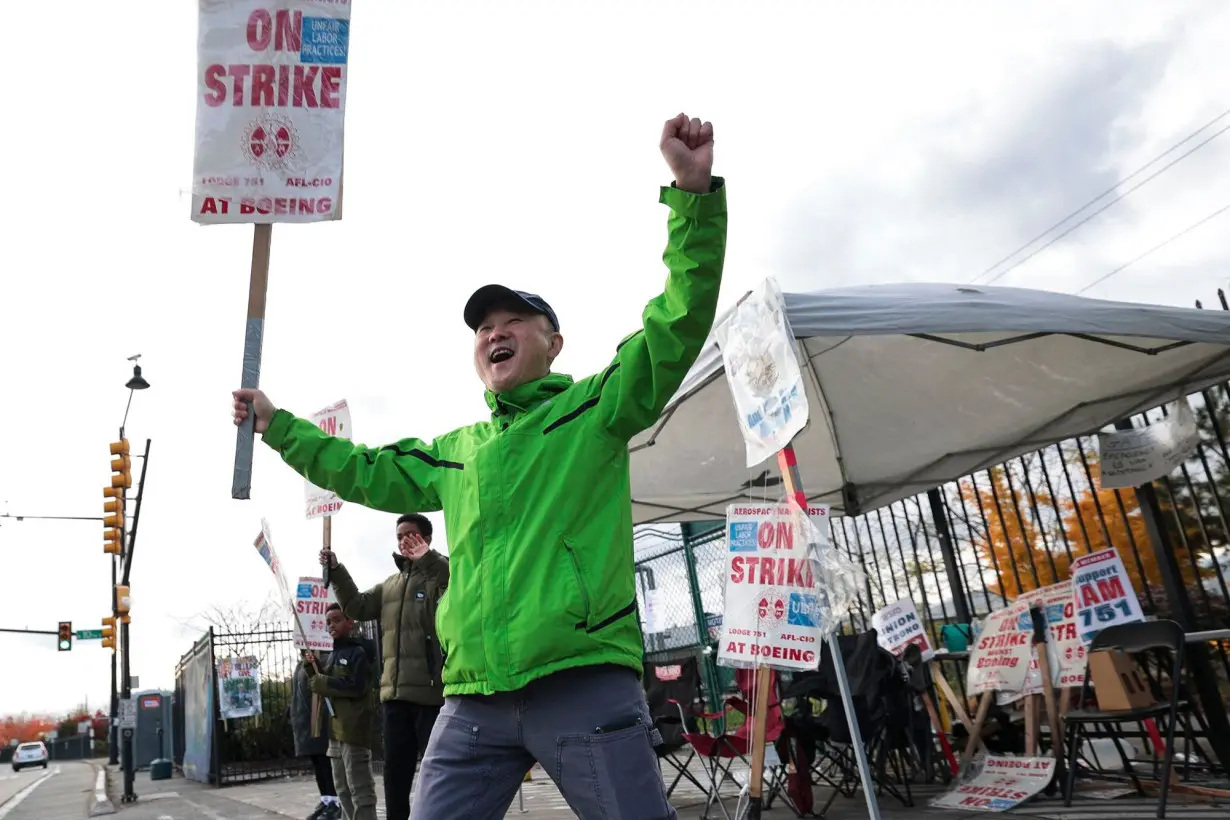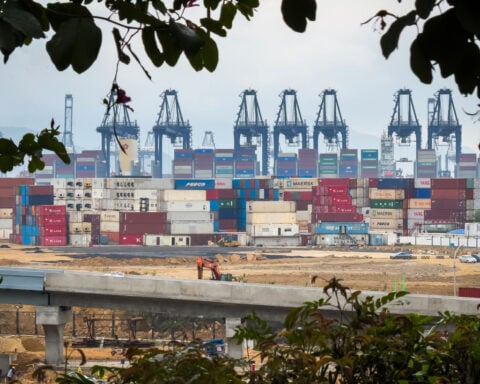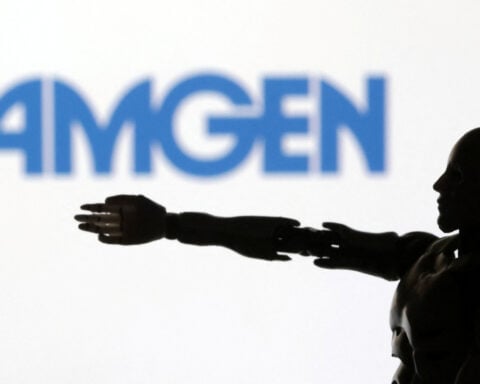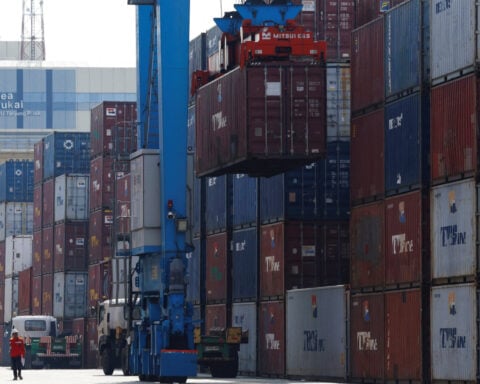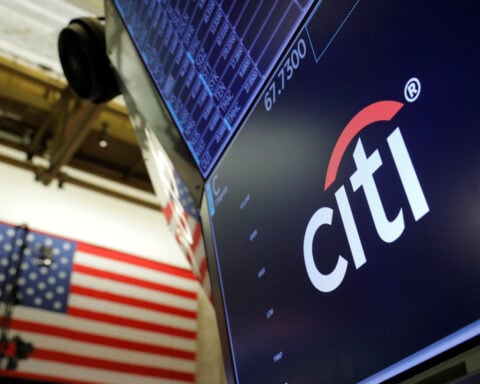New York (CNN) — Striking workers at embattled plane maker Boeing voted Monday to accept the company’s most recent offer, ending the costliest strike in the United States in more than 25 years.
The International Association of Machinists (IAM) said rank-and-file members voted by 59% to approve the deal. IAM members had voted almost unanimously against Boeing’s first offer on the eve of the start of the strike, and then 64% voted against the second offer less than two weeks ago, extending the strike.
“I’m proud of our members. It is a win,” said Jon Holden, president of the largest IAM local at Boeing and the union’s chief negotiator. “They achieved a lot, and we’re ready to move forward.”
Asked what prompted a positive vote this time after two previous rejections, Holden told reporters: “Members are ready, ready to come back. I look forward to getting them back to work.”
Boeing said it was pleased with the outcome.
“While the past few months have been difficult for all of us, we are all part of the same team,” CEO Kelly Ortberg said in a statement. “We will only move forward by listening and working together. There is much work ahead to return to the excellence that made Boeing an iconic company.”
The 33,000 union members, who have been on strike since September 13, will start returning to work Wednesday.
The deal calls for an immediate raise of 13% and raises of 9% for each of the next two years, and then another 7% in the fourth and final year of the contract. Taken together, members will receive a pay raise that exceeds 43%.
Workers also get a ratification bonus of $12,000, part of which they can contribute to 401(k) retirement accounts. But the deal did not restore the traditional pension plan they lost in 2014 from their previous labor deal.
Workers’ continued anger at the loss of that pension plan was seen as a major factor in the rejection of Boeing’s (BA) previous two offers and had raised uncertainty about the outcome of Monday’s vote.
Pension problem
Holden acknowledged the pension was likely a major issue for many of the 41% who voted against the deal.
“Fifty-nine percent is a lot, but there are definitely those who were not happy with the agreement,” he said. “Many of the members were fighting to get the pensions back. It’s a righteous fight.”
Companies, both unionized and nonunion, have generally moved away from a traditional pension plan, known as defined benefit plans, in recent decades. Such plans generally pay retirees a set amount every month no matter how long they live, or how well pension fund assets perform.
Such plans place the risk with the companies. For that reason, defined benefit plans are only available to about 8% of US workers in the private sector today, according to data from the Employee Benefit Research Institute. That compares to 39% in 1980.
Boeing employees have what’s known as a defined contribution plan, such as 401(k) plans, where the company’s obligations end after it contributes to the individual workers’ account. Boeing agreed to increase the contributions it was making to those accounts, but refused to go back to the defined benefit plan as the union and many members had demanded.
“Our members deserve pensions just like every worker deserves a safe, fair retirement in the future,” Holden said Monday following the vote. “They weren’t wrong in feeling the way they did. I agree with them. We just couldn’t get the pension out of this company. We’ll continue working on that issue.”
Leadership support
Union leadership had urged members to accept the latest offer, even though it was not significantly different from the one they rejected on October 23. The union had urged members “to lock in these gains and confidently declare victory,” and warned members that another rejection could “risk a regressive or lesser offer in the future.”
The strikers have lost more than $600 million in combined wages but the cost to Boeing has been significantly greater, according to estimates from Anderson Economic Group, a Michigan-based research firm, which puts Boeing’s losses through the end of last week at $6.5 billion. Overall, the cost to the US economy has topped $11.5 billion.
Those losses come on top of the nearly $40 billion in core operating losses that Boeing has reported since two fatal crashes led to a 20-month grounding of its best-selling jet, the 737 Max, in 2019 and 2020. The company has already warned that its losses would continue through at least the end of 2025 no matter how quickly the strike ended.
But despite the deep financial problems, Boeing had little choice but to settle the strike and get the workers back on the job. The strike has choked off its major source of revenue, since it gets most of the cash from the sale of commercial jets at the time it is delivered to airlines. Deliveries of all 737 Max planes as well as freighter models have been halted by the strike.
The wages that Boeing pays to its workers make up far less than 10% of its overall cost of producing a plane, with most of the cost going into raw materials and purchases from suppliers who produce everything from avionics to the fuselage of the planes themselves.
Boeing’s economic impact
Despite its problems, Boeing is still a major contributor to the US economy, as it is the largest American exporter.
The strike has caused problems and layoffs at many of Boeing’s 10,000 suppliers, which are spread across all 50 states. Boeing estimates its own annual contribution to the US economy at $79 billion, supporting 1.6 million jobs directly and indirectly. It has 150,000 US employees, including the strikers.
The Labor Department’s latest monthly employment report showed that 44,000 jobs were impacted in October, counting not just the 33,000 strikers, but also workers at Boeing and its suppliers who aren’t on strike but have been temporarily laid off as the strike halts commercial aircraft manufacturing at the aviation giant entirely.
There have been short-term problems for airlines, too. While they’ve been able to continue to fly the Boeing planes already in their fleets, promised deliveries of new jets have come to a halt. And that delay comes on top of ongoing delays, due to questions about the quality and safety of Boeing jets.
Those problems were worsened by a January incident in which a door plug blew out of an Alaska Airlines jet soon after takeoff, leaving a gaping hole in its fuselage. Investigators discovered Boeing had delivered the plane without the four bolts needed to keep the door plug in place.
Ending the strike is important for Boeing’s Ortberg, who started in the job just five weeks before the strike began. He has said he wants to “reset” the company’s relationship with the union.
This story has been updated with additional reporting and context.
The-CNN-Wire
™ & © 2024 Cable News Network, Inc., a Warner Bros. Discovery Company. All rights reserved.

 Trump has begun another trade war. Here's a timeline of how we got here
Trump has begun another trade war. Here's a timeline of how we got here
 Canada's leader laments lost friendship with US in town that sheltered stranded Americans after 9/11
Canada's leader laments lost friendship with US in town that sheltered stranded Americans after 9/11
 Chinese EV giant BYD's fourth-quarter profit leaps 73%
Chinese EV giant BYD's fourth-quarter profit leaps 73%
 You're an American in another land? Prepare to talk about the why and how of Trump 2.0
You're an American in another land? Prepare to talk about the why and how of Trump 2.0
 Chalk talk: Star power, top teams and No. 5 seeds headline the women's March Madness Sweet 16
Chalk talk: Star power, top teams and No. 5 seeds headline the women's March Madness Sweet 16
 Purdue returns to Sweet 16 with 76-62 win over McNeese in March Madness
Purdue returns to Sweet 16 with 76-62 win over McNeese in March Madness
